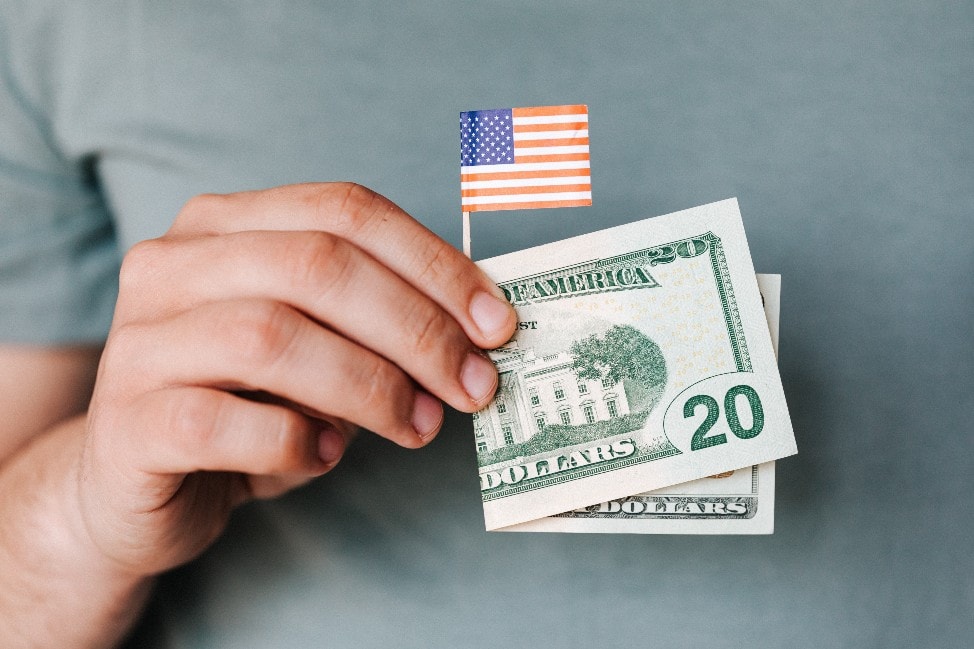I’m not sure if you’ve noticed, but this is a presidential election year. At the time of writing, voting is already underway. As a financial advisor I’m often asked about my opinion on the link between politics and money. Does it really matter to us, as savers, investors, property owners or retirees, who is in the White House?
It’s a great question, and it’s up for debate. But there is a surprising fact about politics and money that might have passed you by until now. When it comes to politics and elections, there is one vote that is far more important to your money than others. Do you know what it is?
The Government and the Economy
Ever since the days of Alexander Hamilton, the first Secretary of the Treasury and a founder of the original US financial system, the Government’s role in the country’s economy and the
relationship between politics and money has been significant. But has it been overplayed or misunderstood?
The Government generally has two roles to play with the economy. Firstly, the elected Administration will seek to promote economic growth and stability, which it does through fiscal policy (tax rates and spending programs) and monetary policy (how much money is in circulation).
Secondly it will attempt to regulate and control the economy. It does that by establishing laws and regulations that affect economic activity, such as promoting competition between businesses, workers rights and upholding as far as possible the principles of a free market.
A Very Fine Balance
A government’s fiscal policy is thought to have a direct correlation to the economy. If a government decides to raise taxes, the economy will – in theory – slow. This is because people will have less money to spend, so businesses will start to produce less to meet a lesser demand. Cutting taxes frees up money for people to spend as they like.
However, when taxes are raised, the government has more money for more spending. This generally involves spending on education, military equipment, scientific research and so on, meaning that the money transfers back into private businesses who can employ people. So the taxed money is reintroduced back into the hands of the businesses and ultimately the public.
Lending for Growth
Monetary policy also affects the economy. Broadly put, when more money is in circulation (but only up to a point), the economy grows. This doesn’t mean that the Federal Reserve will just print more dollar bills – instead, it will authorise banks to loan more money out and lower interest rates. Lower interest rates means more money will be borrowed, so more money is in circulation.
When the balance needs readdressing, interest rates will be increased meaning that people will prefer to save rather than borrow money. Then less money is in circulation.
Fiscal and monetary policy come into their own during recessions – which, don’t forget, we have seen periodically throughout the 20th century and beyond. Traditionally, fiscal policy was relied upon to stimulate the economy after bad periods, but now monetary policy has replaced it as the go-to method for economic revival.
And over the last few decades, the various administrations have taken it upon themselves to alter the regulation of the market. They’ve believed that taking different tactics as far as regulations and giving businesses more leeway is a way to free them up for more economic growth.
What Do the History Books Tell Us?
Now we’ve covered the basics of governmental control over the economy, let’s have a look at how that’s actually played out. Can we see a relationship between party politics and money, and how it behaves?
With their attitude towards taxes and market regulation, wouldn’t you expect the Democrats to have a fairly lousy record when it comes to the economy? You might. But you’d be wrong.
The performance of the stock market is a fairly good indicator of the health of the economy. And looking back to when Truman was in the Oval Office in 1945, the S&P return has been far healthier under Democrat governments than Republicans.
Bill Clinton oversaw the most successful S&P return during his time in the White House – between 1993 and 2001, the S&P rose 210%. Barack Obama comes in second, with Eisenhower’s administration of the 1950s coming in with the third best S&P performance.
Donald Trump has overseen a rise of 43%, whereas while his Republican predecessor, George W. Bush was in power, the S&P took its biggest ever dive under one president, losing 40% of its value over his eight-year presidency.
Can the Democrats Take the Credit?
Is the connection between politics and money that simple? Does a Democratic government always mean a strong S&P performance?
No. Like everything else in politics, it’s just not that straightforward. The stock market is influenced by a huge amount of factors, and no single president or administration can ever take full credit for what’s going on with the stock market.
For example, Bill Clinton oversaw a period of huge prosperity, but many would say that was initiated by his Republican predecessor, George H W Bush. Jimmy Carter looks to have presided over a decent, straight stock market climb with no dips, but inflation was raging in the background.
International events (invasions of the Middle East, the Iranian revolution) as well as domestic ones (Watergate, the death of JFK) all had huge implications for the stock market.
But as we’ve seen in previous articles, the stock market is always a rollercoaster of a ride. When it’s gone down, it’s likely going right back up again. The market will always fluctuate, and one government’s losses will be the next government’s gains.
Don’t Forget Congress
If you look at the stock performance in relation to the control of Congress, then you get a different picture. When Congressional control is split, historically stocks have done better than when either party has a majority.
Forbes says this: “Stocks did best when 1) political control was split; 2) when Republicans held the Senate or the House; or 3) when a Democrat was president. In other words, stocks underperformed when either party had total control.”
Interesting, right? Maybe when it comes to politics and money, success really is all about cooperation, finding that happy medium, that sweet spot of compromise…
The Presidency and Your Investments
So what has this told us about your investments and the influence of the presidency? Well, it’s taught us that markets rise and markets fall, and you just still can’t predict which way it’ll go.
It’s yet another yardstick which we can measure our investment management process by – you can’t and shouldn’t time the market. Despite the tumultuous dips and rises under different presidents, a $1000 investment in 1945 would have compounded at an annual average rate of 11%, and by 2020 would be worth over $2.3 million.
So It Doesn’t Matter Who I Vote For?
I think people who consider themselves to be smart investors would say no – who’s in the White House isn’t going to have a great bearing on your portfolio. History has shown that anything can (and does) happen. Recessions are regular, as are market recoveries. Neither party can take blame nor credit.
But of course it still matters who you vote for. Voting for your representatives is a huge part of living a life with purpose. Vote for who you feel speaks for you. Read into the economic policies of both parties (Republican or Democrat) and see which align more closely with your values.
And pay close attention to the Senate, to Congress and the White House, as that may have a more significant impact on your money.
But your vote IS hugely important in one other area of politics.
For Politics and Money: Think Local
I think this is the connection between politics and money that gets forgotten. Voter turnout is so depressingly low in local elections that people simply MUST be missing this. Nationwide, only 27% of eligible voters are actually casting their votes, and the vast majority of people voting in locals are both older and affluent. Huge, important sections of society are just not getting out there for these ones.
But local elections are where the connection between politics and money – YOUR money – is at its strongest. So if you want to vote for your personal financial security, think local. Local elections matter far more to your personal finance than presidential elections.
A huge amount of what a government provides for its people – schools, infrastructure, transportation, water supply, emergency services – are managed at a local level. If these are not adequately funded, you’ll find either your living circumstances are negatively affected and it comes at a personal cost, or your local taxes are raised to compensate.
Poor local government spending can impact you in quite subtle ways. Are your local roads in poor condition, meaning regular costly repairs to your car? Is your local school underfunded, so you’re topping up with extra tuition for your children? Is your local water supply poor, so you’re depending on bottled water? There are many ways that local mismanagement of funds could impact on your personal finances.
If your local government is successfully tackling crime in your neighbourhood, your property might well see a significant increase in value. And how might they do that? Through good policing as well as vital social programs.
Some people believe that politics has a trickle-down effect, with federal policy eventually shaping lives at a community level. But that fails to take into account the grass-roots impact. The demands and expectations of community members actually forces action upwards through the various levels of politics. Politicians – and their policies – are voted in by people who want them – all the way from the bottom up.
Blue or Red? Either Way, We’re Happy To Help
When you’re voting in presidential elections, don’t worry too much about the impact it will have on your investments. Any promises of economic success made by either side can probably be written off – as history has shown us – as fake news. If you want to make sure that politics is really working for you and your money, vote local as well as national, and follow a solid investment strategy.
Whatever the results of the election, we can help you to make the right decisions about your money for yourself and your family. If you’d like to discuss your financial situation with us, please don’t hesitate to get in touch.













